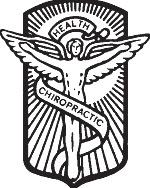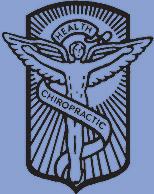Age-based health screening guidelines
METRO CREATIVE
Early detection is crucial to overcoming serious illnesses. Preventive care is something parents prioritize when raising children, but it’s a crucial component of healthy living as an adult as well.
Health professionals recommend various age-specific screenings and tests, and these can serve as a guideline for individuals as they navigate adulthood. The following age-specific health screening recommendations, courtesy of Beaumont Health and Columbia Doctors Primary Care, can serve as an preventive care guideline, though doctors may advise patients to get more frequent screenings depending on their medical histories.
18 TO 39 YEARS OLD
• Cholesterol: A cholesterol check should occur around age 20, then every five years until age 35. Afterward it can occur annually.
• Skin screening: An annual full body screening will identify any suspicious moles or skin lesions.
• Cervical cancer: Women in this age range should receive a Pap smear every three years and an annual pelvic exam.
• Breast exam: Self-examination of the breasts and examination by a clinical provider should take place every year.
• Testicular exam: Men should conduct self exams for testicular abnormalities. Doctors may examine the testicles during annual physicals as well.
• Tdap vaccine: All adults should get the Tdap vaccine if they did not receive it as an adolescent to protect against pertussis, and then a Td (tetanus, diphtheria) booster shot every 10 years.
• HPV vaccine: The human papilloma virus vaccine is recommended if you did not receive it as an adolescent.
No
40 TO 64 YEARS OLD
• Zoster (Shingles) vaccine: Two doses of this vaccine will be administered between two and six months apart starting at age 50 and up.
• Colorectal screening: A colonoscopy to detect any colorectal illnesses is recommended beginning at age 50.
• Prostate screening: Prostate screenings begin at age 50 unless you are a high-risk individual, in which case screenings begin at age 40.
• Osteoporosis: Doctors may recommend a bone density test and osteoporosis screening at age 50 and up if certain risk factors are present.
• Lung cancer screening: If you are a past or current smoker, it’s wise to have an annual lung cancer screening. The American Lung Association says adults age 55 and up can have this screening covered by health insurance.
• Mammogram: Women should begin receiving annual mammograms at age 40.
65 YEARS AND OLDER
• Cervical cancer: Most women can stop getting Pap smears at this age if they have no history of cervical cancer. Women who have had a hysterectomy may no longer need pelvic exams after age 65.
• Pneumococcal and pneumonia vaccines: These are recommended every five years for certain conditions and risk factors.
• Cognitive health: Doctors may assess your cognitive health to see if there are any risk factors for dementias.
In addition to these screenings, doctors may conduct annual depression screenings to assess mental health. Routine blood glucose monitoring may be necessary based on risk factors for diabetes.
Individuals are urged to speak to their
a

Henry
OSF HealthCare – Medical Group
327 Edward St., Henry (309) 364-2002
Monday, 7 a.m.-4 p.m.
Wednesday, 7 a.m.-4 p.m. Thursday, 7 a.m.-Noon Friday, 7 a.m.- 4 p.m.
Sheffield
OSF HealthCare – Medical Group
240 N. Mason St., Sheffield (815) 454-2811
Monday-Tuesday, 7 a.m.-5 p.m.
Wednesday, 8 a.m.-5 p.m. Thursday-Friday, 7 a.m.-5 p.m.
Princeton
OSF HealthCare – Medical Group 535 Park Ave. E., Princeton (815) 875-4531
Monday and Friday, 7 a.m.-6 p.m. Tuesday-Thursday, 7 a.m.-7 p.m.

OSF HealthCare – Medical Group 530 Park Ave. E., Ste. 303, Princeton (815) 876-3350
Monday, 7 a.m.-5 p.m. Tuesday-Friday, 7 a.m.-6 p.m.








Trouble Hearing on

Phone?







•
•
•
•
•













